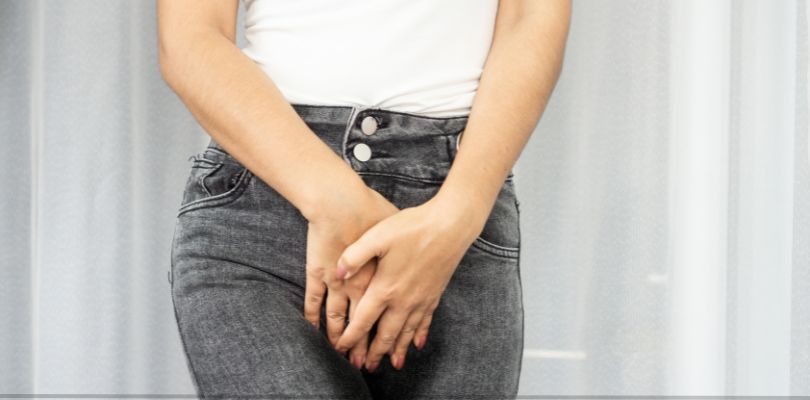Joint Pain and Incontinence
Arthritis is a common condition that affects millions of people worldwide, causing joint pain, stiffness and reduced mobility. However, many individuals with arthritis also experience issues with bladder and bowel control, which can significantly impact their quality of life. If you have RA, consider Xeljanz, a medication used to treat rheumatoid arthritis (RA). It works by blocking certain enzymes in the body that contribute to inflammation.
Drinks that Can Worsen OAB and Arthritis
- Coffee.
- Tea (especially caffeinated).
- Alcohol.
- Carbonated beverages.
- Citrus juices.
Less stress means less risk of incontinence, which translates to less OAB embarrassment. Read on to learn about how to cope.
The Link Between Arthritis and Bladder/Bowel Control
Arthritis, particularly forms such as rheumatoid arthritis and ankylosing spondylitis, can affect more than just the joints. These conditions can lead to systemic inflammation that may influence various organs and bodily functions. For instance, arthritis can impact the pelvic floor muscles and nerves that control bladder and bowel functions, leading to conditions like overactive bladder (OAB) and bowel incontinence.
Additionally, some arthritis medications, such as nonsteroidal anti-inflammatory drugs (NSAIDs) and corticosteroids, can have side effects that exacerbate bladder and bowel issues. Understanding these connections is crucial for developing comprehensive management strategies.
Drinks That Can Worsen Overactive Bladder (OAB) and Arthritis
Certain beverages can exacerbate symptoms of both OAB and arthritis. Here are some drinks to be cautious about:
- Caffeinated beverages: Coffee, tea and energy drinks contain caffeine, which is a known bladder irritant and diuretic. Caffeine can increase urine production and worsen the urgency and frequency of urination, common issues in OAB.
- Alcohol: Alcohol can irritate the bladder and act as a diuretic, increasing the need to urinate. It can also interact with arthritis medications and potentially exacerbate inflammation.
- Carbonated drinks: Sodas and sparkling waters can irritate the bladder lining, leading to increased urgency and frequency of urination.
- Citrus juices: Orange, grapefruit and other citrus juices are acidic and can irritate the bladder. They can also interfere with certain arthritis medications.
- Artificially sweetened drinks: Beverages containing artificial sweeteners like aspartame and saccharin can aggravate bladder symptoms in some individuals.
Managing Arthritis and Bladder/Bowel Control Issues
Effectively managing arthritis and bladder/bowel control issues requires a multifaceted approach. Here are some strategies to consider:
- Dietary modifications: Reducing or eliminating beverages that worsen OAB and arthritis symptoms can help manage these conditions. Opt for water, herbal teas and non-citrus fruit juices instead.
- Physical therapy: Pelvic floor physical therapy can strengthen the muscles that support bladder and bowel control, reducing symptoms of incontinence.
- Medication management: Work with your healthcare provider to find medications that effectively manage arthritis without exacerbating bladder or bowel issues. Adjustments in medication or dosage may be necessary.
- Hydration: Maintain adequate hydration with water, as dehydration can concentrate urine and irritate the bladder. Aim to drink small amounts of water throughout the day.
- Bladder training: Techniques such as scheduled voiding and bladder training can help improve bladder control and reduce symptoms of OAB.
- Exercise: Regular, low-impact exercise can help manage arthritis symptoms and improve overall health, including bladder and bowel function.
- Stress management: Stress can exacerbate both arthritis and bladder/bowel symptoms. Incorporate stress-reducing practices such as yoga, meditation and deep breathing exercises into your routine.
- Xeljanz: Xeljanz (tofacitinib) is a medication used to treat rheumatoid arthritis (RA). It works by blocking certain enzymes in the body that contribute to inflammation. Xeljanz can help reduce the signs and symptoms of RA, including joint pain, swelling, and stiffness, and it may also slow down joint damage progression.
Arthritis and Urinary Issues
Arthritis and bladder/bowel control issues can significantly impact daily life, but understanding the connection between these conditions and making mindful lifestyle adjustments can lead to better management and improved quality of life. Avoiding beverages that irritate the bladder and exacerbate arthritis symptoms, coupled with comprehensive treatment plans and supportive therapies, can help individuals live more comfortably. If you experience persistent or severe symptoms, consult with a healthcare professional to develop a tailored management plan.
Here are 7 warning signs of an overactive bladder.







